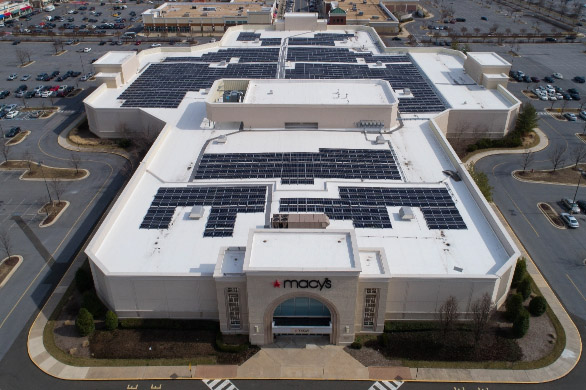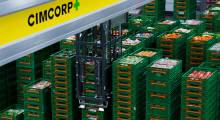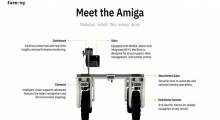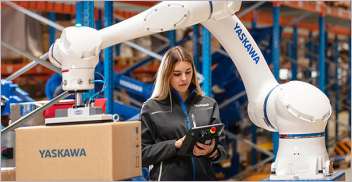Editor’s note: This is the second of two columns on the reinvention of Macy Inc.’s retail supply chain. The first part was about inventory productivity. In this one, we look at how the New York-based retailer is incorporating sustainability into its practices and goals.
Back in May, I sat in on a roundtable discussion on sustainability at the American Supply Chain Summit. Keelin Evans, Macy’s vice president of sustainability, led a lively conversation among the executives.
The speakers made it clear that workforce and environmental sustainability has become integral to supply chain management. For her part, Evans’ message was that sustainability is one of the pillars of Macy’s supply chain modernization, as the department store leader reinvents its business models and processes.
Macy's commits to a holistic approach
Macy's holistic approach is different than the conventional focus on reducing CO2 emissions, carbon footprints, and the amount of waste that goes into landfills. It also highlights that sustainability is a broad term these days, one that every organization interprets differently, depending on its vertical and how it goes to market.
For instance, a starting point for many beverage companies is water usage, a critical but precious resource used in production, while logistics companies often begin their focus by reducing the miles traveled. This can involve mobile robots and electric vehicles, minimizing the use of diesel, or adding alternative fuels to the mix.
How, then, does a major retailer like Macy’s define sustainability, and what are the levers it is pulling to meet its goals?
“Each company defines sustainability in a way that enables their business to be successful,” Evans began. “Our goals are around taking care of people, managing our environmental impact, and bringing sustainable products to life for our customers.”
Just as Macy's supply chain organization is guided by principles, sustainability is guided by four priorities:
- A commitment to the environment;
- Human rights and social compliance policies and practices with its private-brand suppliers and their factories;
- Expanding the assortment of sustainable products, which must be authenticated by at least one third party certification or other traceable means, under four focus areas of preferred materials, preferred practices, people first or designed for less waste;
- And finally, governance enabled by disclosure, data analytics, reporting, and stakeholder engagement.
Macy’s calls this approach “Mission Every One.” As part of that initiative, the company has committed to spending $5 billion through 2025 “to people, partners, products, and programs to create a more equitable and sustainable future.”
Jeff Gennette, Macy’s chairman and CEO, has stated that sustainability is embedded into the company’s business model, not separate from it. He stated that “we seize every opportunity to raise social expectations, reduce environmental risk, and build a culture that benefits everyone.”
Retailer works to reduce emissions, increase sustainable products
During our chat, Evans walked through representative projects for each of its four pillars, starting with the environment. Macy’s has committed to setting near-term company-wide emissions reduction targets in line with the Science-Based Targets Initiative, according to Keelin.
Key goals include a 10% reduction in energy consumption from a 2018 baseline by 2025. To get there, Macy’s is mapping its own energy consumption around Scope 1 and Scope 2 emissions and is gathering baseline data for Scope 3 emissions.
Specifically, the department store chain is now hosting more than 95 active solar sites nationwide and has partnered with Volta Charging to offer free electric vehicle charging to customers at 49 locations. To date, Macy’s decreased its Scope 1 and 2 greenhouse gas emissions by 20% from 2018 through 2021.
It has also reduced its box volume by up to 50% through the use of fit-to-size box-making technologies for certain fulfillment orders. Macy's is also now using 100% recycled polyester in its private brand care labels and 55% certified sustainably sourced materials in the fliers it sends to customers.
“We’re excited about those,” Evans said.
When it comes to sustainable products, the retailer has committed to adding an additional 5,000 product pages to the Macys.com sustainability sitelet, with merchandise from all of its product categories.
“One of our goals is to use 100% preferred materials in our private-brand products managed by Macy’s sourcing team by 2030,” Evans said.
Products that meet that description must be authenticated by at least one third-party certification under one of four categories: Designed for Less Waste, People First, Preferred Materials and Preferred Practices. Currently, Macy’s accepts more than 40 certifications.
In other initiatives, Macy’s has joined the Ellen MacArthur Foundation, which is focused on accelerating and enabling the transition to a global, circular economy. Through its reverse logistics team, Macy’s works to find the best use of damaged or returned products in order to keep them out of landfills.
Workforce protections also a priority
As for protecting Macy's workforce and social compliance, Evans said, “We’re building on our priorities of human rights, best practices around social compliance and investing in worker well-being programs in our factories.”
One example is a financial management program that helped one factory worker identify spending areas she could reduce or eliminate in order to open a savings account for her daughter.
Macy’s has established two key goals to strengthen its culture and create opportunities to support the well-being of the workers in the third-party factories making its private-brand products. For the first, Macy’s has set a 2025 goal to establish a supplier culture that, among other things, ensures the health and safety of workers, reasonable working hours, empowers women, and eliminates child or forced labor.
To that end, Macy’s has implemented social compliance auditing programs that track violations amongst its suppliers, creates corrective action plans and remediation, and tracks progress throughout the supply chain. The retail industry is increasingly turning to robots and automation to relieve workers of stress and tedium and to free them for more engaging tasks.
Macy’s “Mission Every One” commitment to spend $5 billion to create a more equitable and sustainable future includes goals to invest in under-represented designers, brands, and business partners. It also directs grant funding to advance human rights, racial justice, workforce development and economic opportunity.
In addition, Macy's is working to accelerate the diverse representation of its own leadership by achieving 30% ethnically diverse representation at all levels director and above by 2025. Many companies view diversity as a source of potential strength and innovation, not political division.
Finally, Macy’s has embedded environmental, social, and governance (ESG) management at all levels of the company. It claimed that its management is leading in the development and implementation of the ESG strategies and programs.
“The Macy’s sustainability journey is anchored on our commitment to care for our people and manage our environmental impact,” said Evans. ”By embedding sustainability across the business and providing our customers with more sustainable products, we believe our customers will see our sustainability work under 'Mission Every One' as progress, feel positive societal change, and, in turn, drive our business into the future.”
About the Author
Follow Robotics 24/7 on Linkedin
Article topics
Email Sign Up
















